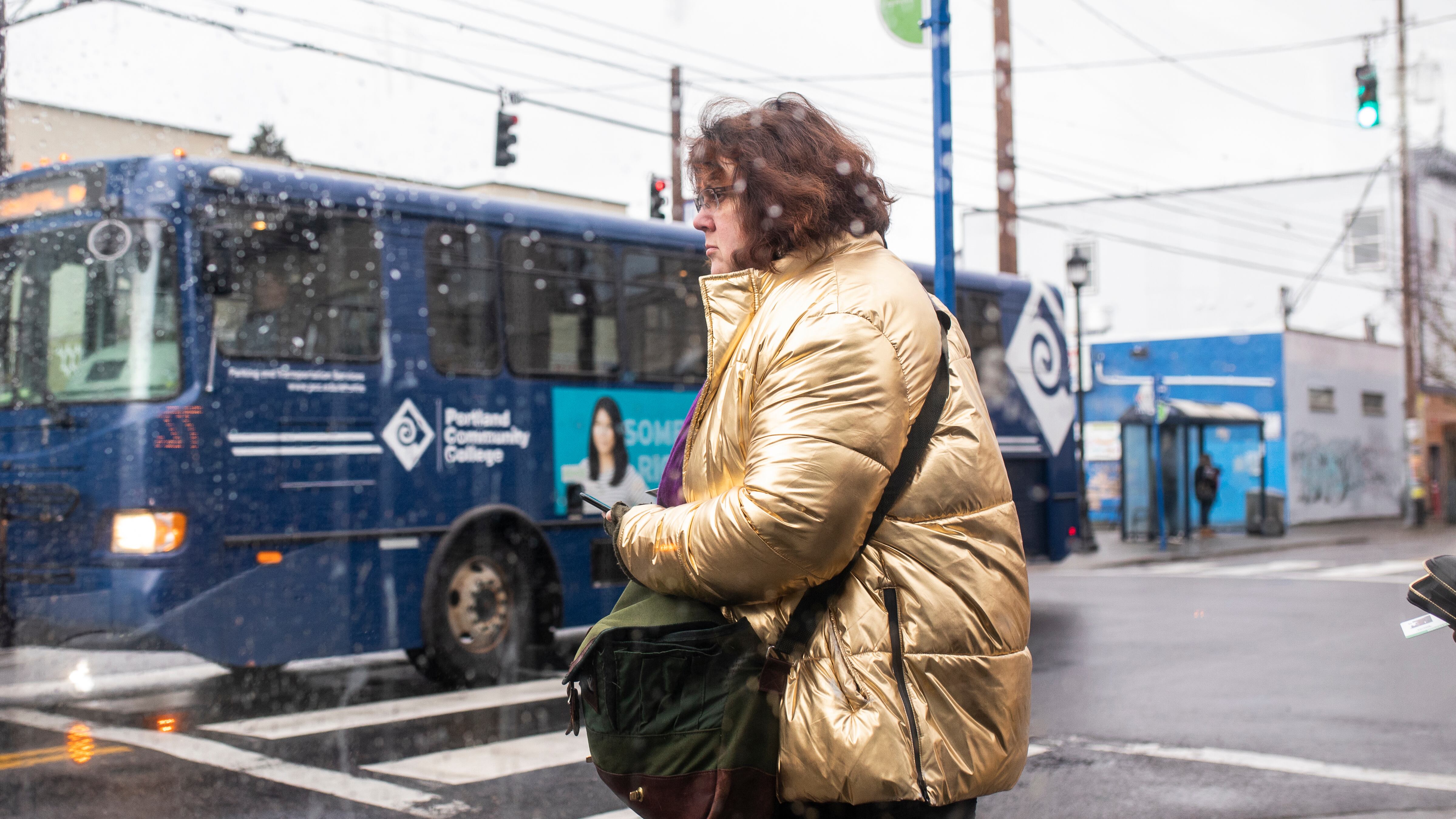The Portland City Council on Thursday unanimously approved an ambitious, citywide plan to take lanes of traffic away from cars and dedicate them to buses.
The Rose Lane Project, a plan championed by City Commissioner Chloe Eudaly, will allocate as much as $10 million toward marking lanes of car-free road and making traffic signal improvements, among other enhancements, in a campaign to make public transit more punctual.
Tonight, Eudaly hailed the project as a bold step to get more people riding public transit—and reduce the carbon emissions of cars.
"The facts are undeniable—climate change is here, we're already experiencing its consequences and it hits our most vulnerable community members the hardest," Eudaly said in tonight's council hearing. "We know that transportation is a massive contributing factor to the climate crisis."
The Portland Bureau of Transportation, which Eudaly oversees, estimates that commuters lose 4,700 hours of delay every day because buses and streetcars are running late. The Rose Lane Project aims to end those delays by yanking the buses and streetcars out of traffic—and into their own dedicated lanes.
The money will be spent in part on creating traffic signals and lanes that prioritize public transit at locations that are notorious choke points. While cars are stuck in traffic, buses will be able to cruise ahead on time. Eudaly and other city officials hope that will encourage more people to ride the bus in a city where transit ridership is flat.
Related: We hopped on the most-used bus in Portland, to ask riders what could make it better.
Jon Gove testified at the council hearing today. He's been a TriMet bus driver for four years and lives in Southeast Portland. He thinks the project will "bring people back to the bus."
"I have a front row seat to the daily impacts of congestion caused by too many people operating in too little or poorly designed roadway space," Gove said. "Passengers feel a loss of control; it's no wonder so many choose to drive."
The Rose Lane Project, while inexpensive by city standards, was initially seen as a radical move in Portland neighborhood politics—because it removes road lanes for driving and parking.
But it passed unanimously, with most of the debate centered on who would get to enjoy the new policy first.
One of the biggest goals of the proposal is to improve ridership quality for low income residents and communities of color since they're most likely to be impeded by unreliable and slow-moving transit. Commissioner Jo Ann Hardesty raised concerns that the planned segments of improvement don't directly benefit that population, citing East Portland as an area particularly in need.
"I'm very concerned that we say the focus is racial equity but nothing in what I've seen and talked about so far leads me to believe that we're prioritizing those who are transit dependent and those who have no other choice," Hardesty said. "I'm all about the people, and what people are gonna be penalized because we're helping people get to the suburbs faster?"
Eudaly replied that even though the plan appears to be concentrated downtown, every inch of the city is impacted when traffic bottlenecks at one central point, creating a ripple effect. She added East Portland could highly benefit from adding more lines and expanded service, but that's a responsibility of TriMet and it's something they've been talking about closely.
"Even though the geographic location of these improvements is in the central city, do they benefit people in other parts of the city? I think that the answer to that is absolutely yes," said TriMet public affairs director Bernie Bottomly in today's testimony. "Those changes downtown not only speed up the system but they make the system much more reliable."
The proposal received a mostly positive response from community members — ranging from young climate activists to retirees. While many acknowledged this will largely benefit the city, some cited concerns about walking and bike safety, and worried TriMet would try to reduce the number of bus stops on high-speed routes.
Ken Marks, the director of transportation equity at a nonprofit called the Rosewood Initiative, told Bottomly, "We look forward to holding your feet to the fire on no consolidation of bus stops. That's a hill we're willing to die on."
